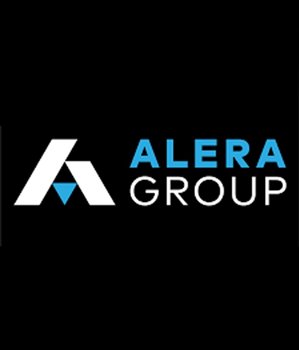Related Categories
Weekly Newsletter
Carrier Updates
Compliance News
Dickerson News
Individual Plans
Industry News
Legal Alert: New ACA-Related Laws Provide More Flexibility to Employers
Compliance News
Thursday, January 16 2025

President Biden signed into law two bills, H.R. 3797 (the Paperwork Reduction Act) and H.R. 3801 (the Employer Reporting Improvement Act), which will positively impact applicable large employers (ALEs) and other entities required to furnish Forms 1095-B or 1095-C to individuals.
Summary of the New Laws
The Paperwork Reduction Act considers employers to meet their requirement to furnish Form 1095-B or 1095-C to employees if the following conditions are met:
• The employer or reporting entity (e.g., insurance carrier) provides a clear, conspicuous and accessible notice that any individual who is otherwise required to receive the Form 1095-B or 1095-C can request a copy. • The employee can request a copy of the form, which the employer or reporting entity must provide no later than the later of:
o January 31 of the year following the calendar year for which the return was required to be made;
o 30 days after the date of such request.
The Paperwork Reduction Act is effective for calendar year 2024 forms that are required to be furnished to employees in 2025.
The Employer Reporting Improvement Act allows employers to provide Form 1095-B or 1095-C to individuals electronically if they have consented to receive it electronically. It also allows employers to use an individual’s date of birth, in lieu of a Social Security number, if the Social Security number is not available when completing the forms, except when reporting the employee on Form 1095-C.
In addition, the Employer Reporting Improvement Act provides employers more time to respond to IRS employer shared responsibility payment (ESRP) letters. In many cases, employers are given approximately 30 days to respond to an initial ESRP letter from the IRS; however, the new law requires the IRS to give employers 90 days to respond to the initial letter before the IRS can take any action against the ALE. This gives employers significantly more time to review Letter 226J and gather the necessary data to prepare an appeal. The law applies to assessments proposed in taxable years beginning after the enactment of the law, i.e. initial Letters 226J sent after December 23, 2024. It will not extend the deadline for Letters 226J already sent to employers before December 23, 2024.
Finally, the Employer Reporting Improvement Act established a six-year statute of limitations, beginning from the date the Forms 1094-C and 1095-C were required to be filed (or the date they were filed if filed after the filing deadline) for the IRS to seek an ESRP. This portion of the law is effective for the 2024 tax year forms (which are due in 2025) and beyond.
To Read More Click Here
Summary of the New Laws
The Paperwork Reduction Act considers employers to meet their requirement to furnish Form 1095-B or 1095-C to employees if the following conditions are met:
• The employer or reporting entity (e.g., insurance carrier) provides a clear, conspicuous and accessible notice that any individual who is otherwise required to receive the Form 1095-B or 1095-C can request a copy. • The employee can request a copy of the form, which the employer or reporting entity must provide no later than the later of:
o January 31 of the year following the calendar year for which the return was required to be made;
o 30 days after the date of such request.
The Paperwork Reduction Act is effective for calendar year 2024 forms that are required to be furnished to employees in 2025.
The Employer Reporting Improvement Act allows employers to provide Form 1095-B or 1095-C to individuals electronically if they have consented to receive it electronically. It also allows employers to use an individual’s date of birth, in lieu of a Social Security number, if the Social Security number is not available when completing the forms, except when reporting the employee on Form 1095-C.
In addition, the Employer Reporting Improvement Act provides employers more time to respond to IRS employer shared responsibility payment (ESRP) letters. In many cases, employers are given approximately 30 days to respond to an initial ESRP letter from the IRS; however, the new law requires the IRS to give employers 90 days to respond to the initial letter before the IRS can take any action against the ALE. This gives employers significantly more time to review Letter 226J and gather the necessary data to prepare an appeal. The law applies to assessments proposed in taxable years beginning after the enactment of the law, i.e. initial Letters 226J sent after December 23, 2024. It will not extend the deadline for Letters 226J already sent to employers before December 23, 2024.
Finally, the Employer Reporting Improvement Act established a six-year statute of limitations, beginning from the date the Forms 1094-C and 1095-C were required to be filed (or the date they were filed if filed after the filing deadline) for the IRS to seek an ESRP. This portion of the law is effective for the 2024 tax year forms (which are due in 2025) and beyond.
To Read More Click Here